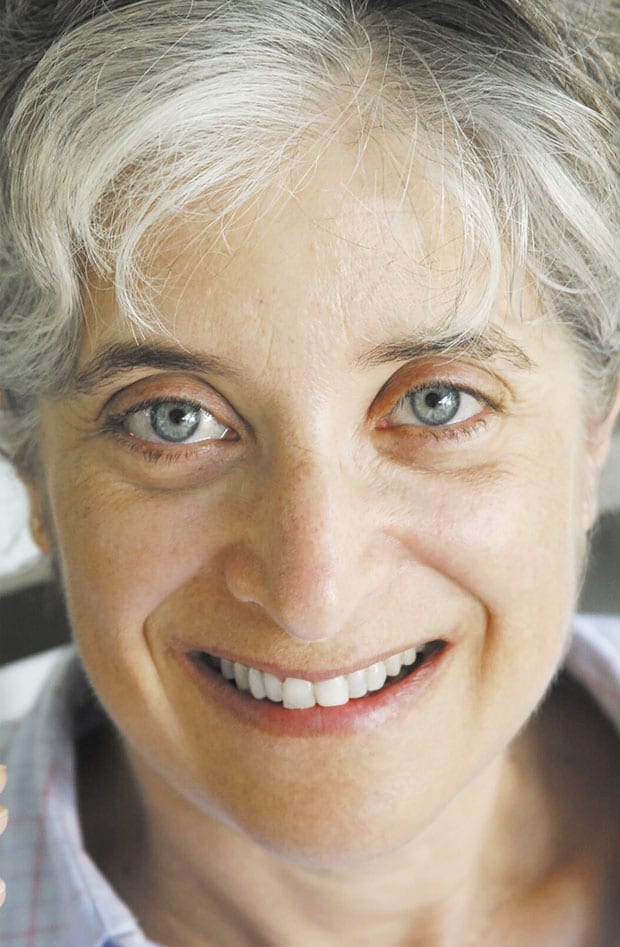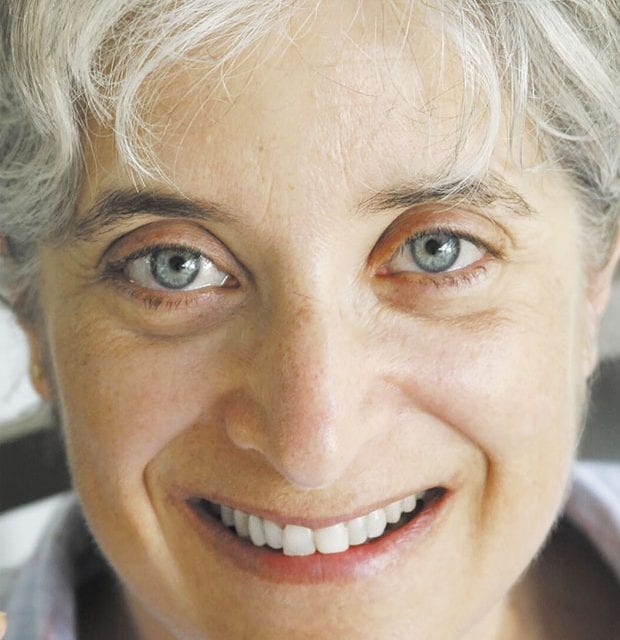Leah Lax’s memoir tells how she left the Chasidic world and found herself again

Leah Lax
DAVID TAFFET | Senior Staff Writer
It’s the tale of how a child of 1960s liberals, who grew up at classically Reform Temple Emanu-el on Hillcrest Road in Dallas, spent years in an arranged marriage where birth control was not allowed, and lived with a covered body. And it is told in Leah Lax’s memoir, Uncovered: How I Left Chasidic Life and Finally Came Home.
She will tell her story at Temple Emanu-el at 7 p.m. on Thursday, Feb. 23.
Lax called her move to the world of the ultra-Orthodox an act of rebellion against her parents and her upbringing. But, as she now admits, she soon learned, “That’s no place for a baby lesbian.”
Still, her attraction to Chasidism was more than rebellion. She said she embraced the beautiful teachings and, as a cellist, lost herself in the melodic minor-key music the movement produced. She studied the religion and thought of herself as a Yeshiva boy — you know, as in Yentl.
But Lax’s marriage was stifling. Her cello went into the closet. And, of course, this wasn’t Yentl and she wasn’t permitted to study.
“I lost myself as I matured,” Lax said.
Her husband proposed the night they met on a date she described as taking place in a Sears parking lot. Over the next 10 years, she had seven children and a miscarriage, then found herself pregnant again.
“In the Chasidic world, they define manhood and womanhood for you,” she said. “This is how a woman walks. This is how a woman talks. This is how a woman behaves.”
She called her husband distant — even described him as having Asperger’s symptoms — but brilliant, with degrees in physics and math and a doctorate in biophysics.
But her final pregnancy was a breaking point.
“I was either going to have an abortion or I was going to die,” she said.
For that, Lax knew, she needed the permission of the rabbi. In Judaism, abortion is required if it is a situation of choosing between the life of the fetus and the life of the mother. Their rabbi, reluctantly, agreed not to stop her because he knew her mental health was at stake.
“That’s when I woke up,” Lax said. “I own my body.”
That was also the end of her marriage and when she came out as lesbian. Living in Houston, her attorney advised her she had no chance of gaining custody of her children. Most of them were no longer living at home, because they were shipped off to boarding Yeshivas — religious schools — at age 14, so she agreed.
She left the marriage and her home with little more than her cello. Coming out was natural for her.
“I’ve never been attracted to anyone other than a woman,” she said.
What she had to learn was how to do everyday tasks. She didn’t know how to order off a menu, read a lease or use a remote control.
“I thought the Internet was irrelevant,” she said. “I felt like a refugee in my own country.”
That concept sparked the idea of collecting immigrant stories for a new book — something, she said, that suddenly became even more relevant in the age of Trump.
For years, Lax struggled to tell her own story and worked for years to write it. When she was accepted in a women’s month-long writing retreat, Gloria Steinem took her under her wing and even provided the title to her book. Lax said she had been trying to write a feminist memoir, but didn’t have the language until her friendship with Steinem developed.
The book has brought her very close with two of her children. Four of the seven have left the Chasidic world.
Lax said she counts her abortion as the most important thing she did in her life.
“Until I owned my body, I couldn’t make any decisions,” she said.
And how’s her life today?
“I fell in love,” she said. “We’re together 12 years.” And her book is being turned into an opera.
This article appeared in the Dallas Voice print edition February, 17 2017.
















